R. Fiore | June 5, 2025
But I am old and you are young,
And I speak a barbarous tongue.
— W.B. Yeats
In the early days of the lead time of his just-published biography of Robert Crumb, Dan Nadel asked me to write something about racial obscenity in the work of Robert Crumb. I believe I sent him some preliminary remarks that did not get to the meat of the matter with the intention of writing a follow-up soon after. These good intentions were mostly lost in the morass of a creative lethargy that has swallowed most of my intentions to write over lo these many years, but also on the false starts I attempted I also had trouble getting my thoughts organized.
I have come to find the term racial obscenity more to the point than racial caricature, which I’ve used heretofore, and which has a rather coy air of neutrality. I would commend the term to you as obscenity is something you can suppress even under the First Amendment, and if you excuse it as I have done so many times you ought to be forthright about what you’re excusing. The most prominent example of something universally deemed racially obscene is the Famous Prince of Racial Epithets. For the sake of printability I will replace the tabooed term here with the word “cauliflower.” Much intellectual gas has been passed elucidating a taboo is actually on the simple principle that Whitey has used up his cauliflower privileges. It matters not what the context or the intent is, zee cauliflower privileges, zey are gone, and Whitey may only use it if a building is burning and the people trapped therein will only answer to the word cauliflower. While even more intellectual gas has been expended on how Black people alchemically render the word to something that may be used incessantly by changing “er” to “a”, but the actual principle is that Black people retain their cauliflower privileges. It is taken for granted that Black people use the word ironically, and the irony is silent. If you are neither white nor Black, Whitey has used up your cauliflower privileges too.
The reputation of Robert Crumb, so they tell me, has gone into eclipse in the course of the civil rights renaissance we’ve been having this century. This was a rapid development when you consider that Crumb reached his peak of renown with the publication of The Book of Genesis, which was in 2009. Some speak of this civil rights renaissance as if it were arbitrary and unprovoked. To the contrary, it comes in a context, which is the persistence of inequality. As justice continues to come in trickles rather than cascades, it is hardly surprising that activists would adopt a hard line. What I think of the civil rights renaissance is that a civil rights renaissance is a good idea. What I think about being woke is that it’s a bad idea to give your social movement a dorky name, and one adopted from a form of slang that is designed to be obsolete by the time the general public finds out about it. I myself do not speak of cancel culture. I use the proper word for it: blacklisting. If you think your blacklist is justified you should have the nerve to use the proper name. If you do not want to be thought of as someone who blacklists you should probably not be promoting blacklisting campaigns.
As it happens, blacklisting was an intrinsic part of the great success story of the civil rights renaissance: The slave revolt against the custom among entertainment business muckety-mucks of using their businesses as a harem. This is something that has been going on for a good hundred years and what had been done about it heretofore is approximately nothing. The problem was that it’s very difficult to prosecute a sexual harassment case under due process. The solution was a suspension of due process. If you suspend due process for long enough you are going to be reminded of why of you have due process. This wasn’t a problem because the strategy only works on low-hanging fruit. You needed multiple credible accusations over a long period of time against someone in a profession where you have to be thought of as a nice guy. If you think anyone is ever going be blacklisted based on a single accusation, as Walt Disney used to say, Fantasyland is the happiest land of all. And there actually were a couple of convictions under due process, albeit one, the Cosby case, by a violation of the rules of evidence. Even if the campaign does not fully change polarity from one where victims refrain from making accusations for fear of losing their show business careers to one where the muckety-mucks keep their hands out of the goddamned cookie jar for fear of losing theirs, it is something to be proud of.
 Panel from "When the [Cauliflowers] Take Over America" from Weirdo No. 28.
Panel from "When the [Cauliflowers] Take Over America" from Weirdo No. 28.
While the rhetoric implies there ought to be some censorship, direct action along these lines has not been forthcoming. The civil rights renaissance has no shortage of Savonarolas, but when they have their Bonfires of the Vanities they leave their matches at home. They have their little “reckonings” usually in the form of articles in online publications, where the miscreant artist is brought up before the troops assembled on parade to have his insignia torn off, his sword broken, and thence to be cast out to wander the wilderness like Chuck Connors in Branded. And then nothing happens. Take for an example Westerns. You’d think these people would be death on. It’s not just that you can watch all the Westerns you want, you’re not even discouraged from doing so. The weakness of the 21st-century Savonarola is that he is a big game hunter. The more eminent the figure to be symbolically ostracized the greater the victory for the forces of justice. A day must come when people look at this hall of fame to be sacrificed and wonder what we are actually getting in return.
Now, reading the comments on the Chait article (I know, I know) the refrain from commenters was that they were not suppressing anything but merely engaging in criticism. In this I think the Social Justice Warriors have justice on their side. (That phrase didn’t last long, did it? I think it was because as a squelch “Social Justice Warrior” sounds about as demeaning as “Well Endowed.”) Criteria are propounded and applied to the work in question. Though I might think of these criteria as philistine, they are transparent, and if you are not clear on them, believe me they would be happy to elucidate. If I am no more required to heed them than Matt Fraction is required to heed my suggestions on how he ought to write his comic books, then there is nothing to object to, he says, with a little halo forming over his head.
Indeed, it is unclear what beyond one of these symbolic reckonings has been done against Crumb himself. From what I gather, a mention of Crumb’s name at some alternative comics event was met with hissing and other such vocal signs of disapproval. An attendee at the event publishes a magazine article articulating the case against Crumb so poorly that it wouldn’t be fair to use it as an example. A cartoonist defends Crumb on a social media platform then takes the posts down rather than lose friends over it. This is summarized in an article in Reason magazine, a venue not to be rejected out of hand but best verified before trusted. An artist whose work endures can expect to see his reputation to wax and wane, but I fail to see how a contemporary opinion erases and supersedes every opinion that came before. I used to be the sort of person who thought of criticism as a war of ideas, and if an opinion differed from yours then it had to be defeated. It took me the longest time to get to teach myself that you could simply disagree. It is really galling to find at my advanced age that I have to go through the whole process over again with this moralistic criticism.
So, getting finally to the subject itself: Robert Crumb has explored the Ofay American racial psychosis as deeply as any artist, and in doing so he uses racial obscenity like Lewis and Clark used keelboats. It would be more morally comfortable to believe that he was exclusively satirizing the psychosis of others. I don’t think anyone has ever in a single image captured the depth and breadth of the cruelty of racial obscenity like his fake advertisement for “Cauliflower Hearts.” However, the racial psychosis Crumb is most engaged in exploring how it deformed his own psyche, and how it subsumed his desire for a more animalistic kind of sex his society didn’t offer. This material wasn’t prescriptive, it was confessional and self-therapeutic. And finally, out on the truly thin ice, he had a genuine fondness for 20th century American racial caricature purely as cartooning. You see this in his cover illustration for a Yazoo Records compilation of R&B party records. The image is a perfect visual distillation of the spirit of the album’s contents, and there is nothing in it that is satirical, it is entirely an exercise of the style in Crumb’s idiom. He was at all times willing to risk being misconstrued for the sake of artistic freedom.
 R. Crumb's cover to "Please Warm My Weiner: Old Hokum Blues."
R. Crumb's cover to "Please Warm My Weiner: Old Hokum Blues."The modern-day observer may well wonder how the hell Crumb got away with this in the first place. Well sir, the 1960s hippie cartoonist operated under the luxury of a presumption of good faith. It was presumed that if you were a 1960s underground radical hippie cartoonist you were of the civil rights movement, and shared its goals. This luxury does not necessarily travel in time. Like much of the modern-day civil rights renaissance, he also in his time enjoyed the advantage of the constructive innocence of the young. That is, whoever is responsible for the way things are it couldn’t possibly be you, because you just got here. This had completely disappeared by the time you grow old. There was also abroad in the 1960s a premature sense of what we could look back and laugh at. Back then it was possible to think that we were all on Freedom Road and victory was in our grasp, which is a quite comforting thought for the guilty party.
Crumb was also a prime advocate of the underground comics ethic of exposing the ugliest parts of one’s id. Unless you believe that there is artistic value in completely abandoning a sense of proportion, this was unwise, most of all because ripping the lid off one’s id tended to become a competition. One salutary effect it had was to dispel the notion of comics being exclusively for children; whoever it was for it couldn’t possibly be for the young tads.
I had been aware of the aura of infamy that had grown around "When the Cauliflowers Take Over America" long before I read it. When I finally did get around to reading it I must admit I was shocked. It was clear to me that this was one of the best things that Crumb ever did. It was not actually clear to me at the time why. Even I as I first read it I believed that Crumb was writing about a brand of racism that was of the past. I don’t see how anyone who has been alive the last nine years could deny that it was Crumb who was the less deceived.
“When the Cauliflowers Take Over” pries open the parietal bone of a Stephen Miller or Steve Bannon and shows what’s underneath. It reminds me of “Begging Bowl,” Richard Thompson’s song about a street beggar in Margaret Thatcher’s Britain: “Ministers and agencies, thought you’d seen the last me ...” I believe what gave Crumb this insight was that for all that he was living in a college town he was also living in a rural district. Blue state be damned, the California redneck is the most virulent specimen of the species, having all the vices of the Southern variety with none of the Southern character. The symptomatic example of a California redneck is an entitled puke from the South Bay in a car his daddy gave him yelling at a Black woman pushing a stroller because she made him use his brakes. And today you see a full-blown return of the repressed, with white supremacists openly proclaiming from the White House itself that any Black person in a position of authority got it at the expense of a more qualified white candidate. As I write this the White House is scheming to reserve more of the dwindling number of truck driving jobs that will remain in the wake of the trade disaster they engineered for white truck drivers by imposing an English language fluency requirement for driving a truck. “Goddamned Cauliflowers” and “The Ruff-Tuff Cream-Puffs Take Charge!” are two of the most prophetic political comic strips ever drawn.
 Opening page from "Thre Ruff-Tuff Cream-Puffs Take Charge," from Hup #1.
Opening page from "Thre Ruff-Tuff Cream-Puffs Take Charge," from Hup #1.Crumb’s response to his critics on this account, who have been vocal from the earliest days of his career, is “It’s only lines on paper.” As a defense statement this is not exactly Clarence Darrow. The lines on paper represent something, and a reasonable person could interpret this to be a series of degrading depictions of Black women, which taken together could be seen as a denial of human status. A consequence of it being a satirical interpretation of commercial racial obscenity refracted through Crumb’s psyche is that the obscenity is actually more intense than the original article. In addition, all racial obscenity is a double tap: In addition to whatever the thing itself might do to make you feel like shit, there is the galling implication that no one is particularly concerned about offending you. Crumb’s detractors could invoke the implied case at those who however jocularly or innocently intended to engage in blackface, that when you black up you board a train, and that train carries everyone else who ever blacked up. It’s 16 coaches long and that doesn’t include the baggage cars. The fundamental issue here is that the lines on paper themselves can support any of these interpretations.
Civil rights discourse these days takes the character of revival meeting testimony. The congregant condemns the devil and all his works, avows that he has cleansed himself of his whiteness, and having been to the river and been baptized is ready to go forth and preach the gospel like a lay preacher who has heard the calling. Along with all the good this does it has the fringe benefit of establishing an alibi. Harvey Pekar cautioned us way back in the 1970s not to assume that everything Robert Crumb does has some kind of liberal agenda. I wouldn’t try to pass off Crumb’s parade of personal demons as moral in nature. I would however say that when you are investigating a crime, confessions are more valuable than alibis.
I acknowledge this not to be on both sides of the issue but to point out that I know what I’m excusing. Throughout my ministry in these pages I have returned again and again the question of Why Bob Fiore Gets to Read His Dirty Comics. That road has wended hither and thither in many ways over the years but what is always certain is that by the time it reaches its destination his dirty comics are something Bob Fiore gets to read. Where I finally to come to rest is that if you want yesterday’s art you have to put up with yesterday’s attitudes, and if you want an artist’s art you have to put with the artist’s attitudes. Like any if-statement, this can be stood on its head. A reasonable individual could look at Crumb’s work and have every right to say, “I don’t care if it’s the fucking Mona Lisa, I’m not going to have this shit in the house.” All I would like is the right to read it myself. It’s not that the morality of a work is irrelevant but that morality and aesthetics are separate categories, and good aesthetics will get you through times of dubious morals better than admirable morals will get you through times of aesthetic poverty.
Something I came to realize in the course of a little dustup I was having over whether a particular Walt Kelly story was racial obscenity or a comic depiction of Black characters in good faith is that people who are younger than I am are innocent in a way I am not. (I speak not of Thomas Andrae, the primary fellow I was taking issue with and who as far as I know could be older than I am, but others in the discussion.) That is, I grew up in the era of Martin Luther King, but that was also an era where if you were a kid you still saw all or many of the old racist cartoons and all the old movies as well. For Robert Crumb this acclimation would be all the more because he came along earlier and steeped himself in early 20th century popular entertainment as well.
 Sequence from "When the [Cauliflowers] Take Over America" from Weirdo No. 28.
Sequence from "When the [Cauliflowers] Take Over America" from Weirdo No. 28.
I have before me a copy of Existential Comics, Nadel’s companion anthology of Crumb’s work from the Weirdo and Hup days. If we analogize the career of Crumb with the career of Miles Davis, this period would be equivalent of the Second Great Quartet. With Crumb it was the early days when the acid was doing the talking, the Arcade period, and the Weirdo period. Existential Comics is an excellent overview of the latter, and Robert Crumb in full flight is an editor’s friend. The self-discipline of regular schedules always brought out the best in Crumb, and never more so than in the Weirdo days when he seemed interested in anything and everything. The Mode O’Day stories showcased how Crumb could capture the essence of people he could hardly have been sympathetic with in a way that rings true.
The choice of whether to exclude the racial obscenity or the no-court-will-convict-you-for-calling-it-misogyny, which is frankly a far greater issue in his work than race, is one that will face editors of Crumb’s work for all time to come. Including it is easier to get away with in a complete Crumb or a collected Crumb, and the idea of a bowdlerized Crumb is antithetical to everything he ever stood for and tantamount to a crime against nature. Nevertheless, to publish something is to endorse it, and there will be those who will not let that shit in their anthology just as some would not have that shit in the house. As Crumb has authorized anthologies that skipped the rough stuff before then it is established he isn’t inalterably opposed to such things. If we consider Existential Comics as a back door case for Crumb to those who would ostracize him, it poses the proposition that if you exile an artist who produces work like this from respectable comics then you devalue the art form.
I would hold that any anthology of the Weirdo period that excludes “When the Cauliflowers Take Over” is incomplete, both historically and artistically, but I can see several valid reasons in addition to an editor’s personal judgment. You could say sorry, but I have lost my cauliflower privileges. You could invoke the principle that if you put a drop of hot sauce in a bowl of tapioca pudding what you have is a bowl of hot sauce pudding. It would be like a flash grenade tossed into the middle of the room, drawing attention away from everything Nadel was trying to draw attention to. But I have to tell you right now that when Crumb’s detractors see this sort of thing what they will think is that you’re trying to pull a fast one. The detractor’s argument is that Crumb’s practice of racial obscenity proves that he is A Racist, and no work of A Racist can have any value.
There is a place for thematic anthologies, say on social commentary, autobiography and so forth. That said, when I read Robert Crumb on my own account I am not looking for a curator, I want to read all of it and draw my own conclusions. What I think is really needed now is a revised Complete Crumb Comics, one that would minimize juvenilia, stick to strictly comics and only sketchbook material that is finished strips, in fewer, longer volumes that would be easier to keep in print. It might well be divided as to format into comic book size, magazine size and digest size.
 "Mr. Snoid in 'Once I led the Life of a Millionaire'" from Complete
"Mr. Snoid in 'Once I led the Life of a Millionaire'" from CompleteIn the end all an artist can do is put his art in a condition for people to experience it. If his career ended with The Book of Genesis it would still be nothing short of complete. Short of having every last copy of it destroyed there's nothing anyone can do to frustrate him. He is clearly the greatest cartoonist of his time and he has no true rival. Looking at Crumb I hadn't seen before, as I did when those Taschen sketchbooks finally got past what was in the German sketchbooks, was to be dazzled by the breadth and depth of it.
As to the intellectual atmosphere of the 21st century, well ... I remember one day, it must have been 40 years ago or more, I was on my way to the Hollywood Palladium for a concert by Elvis Costello, a near-contemporary of mine, and the thought occurred to me "This is your time." That is, I was then living in the time when people more or less my age were in their full vigor and creative energy and had therefore taken center stage in the culture. In effect, we had the floor. Today I am every bit as cognizant that it is no longer my time, and it's hard but it's fair. In truth, having been born between 1945 and 1960, I, like Robert Crumb, have had a longer turn than anyone else had. Now the 21st-century people have the floor, and they have it by right. Those who can have their way do. My time valued objectivity and was skeptical of value judgments, and I found this agreeable. The 21st-century tendency is to lay out minute specifications for your value judgments, do your best to enforce them, and look at objectivity as a tool of the Devil. These are both points of view you can have. The voice of reason, heretofore so helpful in formulating my rationalizations, keeps pointing out to me that if I liked the way things were I had it for 50 or 60 years. In this life you only get so much of any given thing, and that seems like a much better deal at the beginning than it does near the end.
The civil rights renaissance is to a large degree a youth protest movement, and an advantage I have is this is not the first youth protest movement I've lived through. From this perspective I can categorically guarantee you that there is no dumb thing being said today that is any dumber than the dumb things that were being said 60 years ago. I can also absolutely promise you that we had Frankfurt School criticism back then. Really the biggest difference between then and now is that then there was a bottomless belief in the efficacy of political violence that was not always theoretical. Another advantage is that I've seen what happens to people who in alienation from their times take the road of reaction. I actually wrote an article about it some time ago called "Rebels Against the Zeitgeist", about how satirists and humorists who had been the very cutting edge in the 1950s failed to cope with the youth culture of the '60s. The first lesson is, seek not to know on whom the shoe fits, it fits on thee. The most important lesson is the worst thing you can do is allow it to embitter you. A further lesson is that urinating into the zeitgeist gets you the same results as the same maneuver into a non-metaphorical wind. The final lesson is that there is no refuge on the right, and that that reaction has a gravitational pull.
 Page from "Angelfood McSpade" from Collected Crumb Comics Vol. 4.
Page from "Angelfood McSpade" from Collected Crumb Comics Vol. 4.Answer to a question no one asked: So, Mr. Fiore, is there any popular cultural phenomenon that alienates you in the way, say, that rock and roll alienated Stan Freberg? Me: Yes. Tattoos. Definitely tattoos. But here’s the thing: The migration of tattoos from their ancestral home of sailors, weirdos and Japanese gangsters to the general population is something that happened in my time. It was in the days when I was happily skipping along to Elvis Costello concerts that tattoos entered the general population, first among the general population of lesbians, then the general population of everyone. The significance of this is that while there were many things in my times I found agreeable I myself never really had any say.
I once wrote in the Journal that I feel blessed to have lived through a time of near-total free expression, and that if it had to end I hoped it would not be until the day after I die. This hope having failed I prefer to continue to live. Though my writing these days tends to be notional, there are principles I seek to stick to, or at least things I am always telling myself about expressing yourself in this time of vigorous contention: Do not write from a defensive crouch. Do not bargain. Do not get angry at people. If you find yourself with a chip on your shoulder, remove it. Do not anticipate criticism of your position and argue with it in advance. Understand that the puritan almost always has the moral high ground. Concede it. Realize that it's a lot to ask to expect every altruist to be a hypocrite, and therefore do not try to position your position as a morally superior one. Say what you've got to say and be aware that there well might be a test. Recall that moral absolutism is a characteristic of the young, and the moral tendencies of one age cohort is not necessarily privileged over another. Recall also that the desire for a morally purified nation is 100% in the American grain, and promised in the brochure. It is a hell of a brochure. All I seek to do is stay off their guilt trip. Amongst my weaponry are such diverse elements as silence, exile, and cunning.
It is a tribute to art comics in the 21st century that if you had a compelling reason to do so you could write off an artist of the stature of Robert Crumb and still have something whole. No longer do you have the Mount Rushmore effect, when a handful of cartoonists are the dominant force, but rather something tantamount to a literary culture. An artist is not a supplicant. An artist is someone who supplies you with something you could not have made on your own. That said, you have the same absolute right to exclude any artist from your inner life as you have to deny any romantic suitor your affection. You may find an artist’s personal morals so repugnant that you can’t enjoy the work. You may wish to write about your disdain for a given artist; people like to read about the art they partake in. Your point of view may become the critical consensus. I cannot help but think, though, that those who would ostracize Robert Crumb from their inner lives on moral grounds are like a kid who gives up ice cream for Lent if Lent went on forever. It brings to mind something Lester Bangs wrote about the passing of Elvis Presley:
If love truly is going out of fashion forever, which I do not believe, then along with our nurtured indifference to each other will be an even more contemptuous indifference to each others’ objects of reverence. I thought it was Iggy Stooge, you thought it was Joni Mitchell or whoever else seemed to speak for your own private, entirely circumscribed situation’s many pains and few ecstasies. We will continue to fragment in this manner, because solipsism holds all the cards at present; it is a king whose domain engulfs even Elvis’s. But I can guarantee you one thing: we will never again agree on anything as we agreed on Elvis. So I won’t bother saying good-bye to his corpse. I will say good-bye to you.



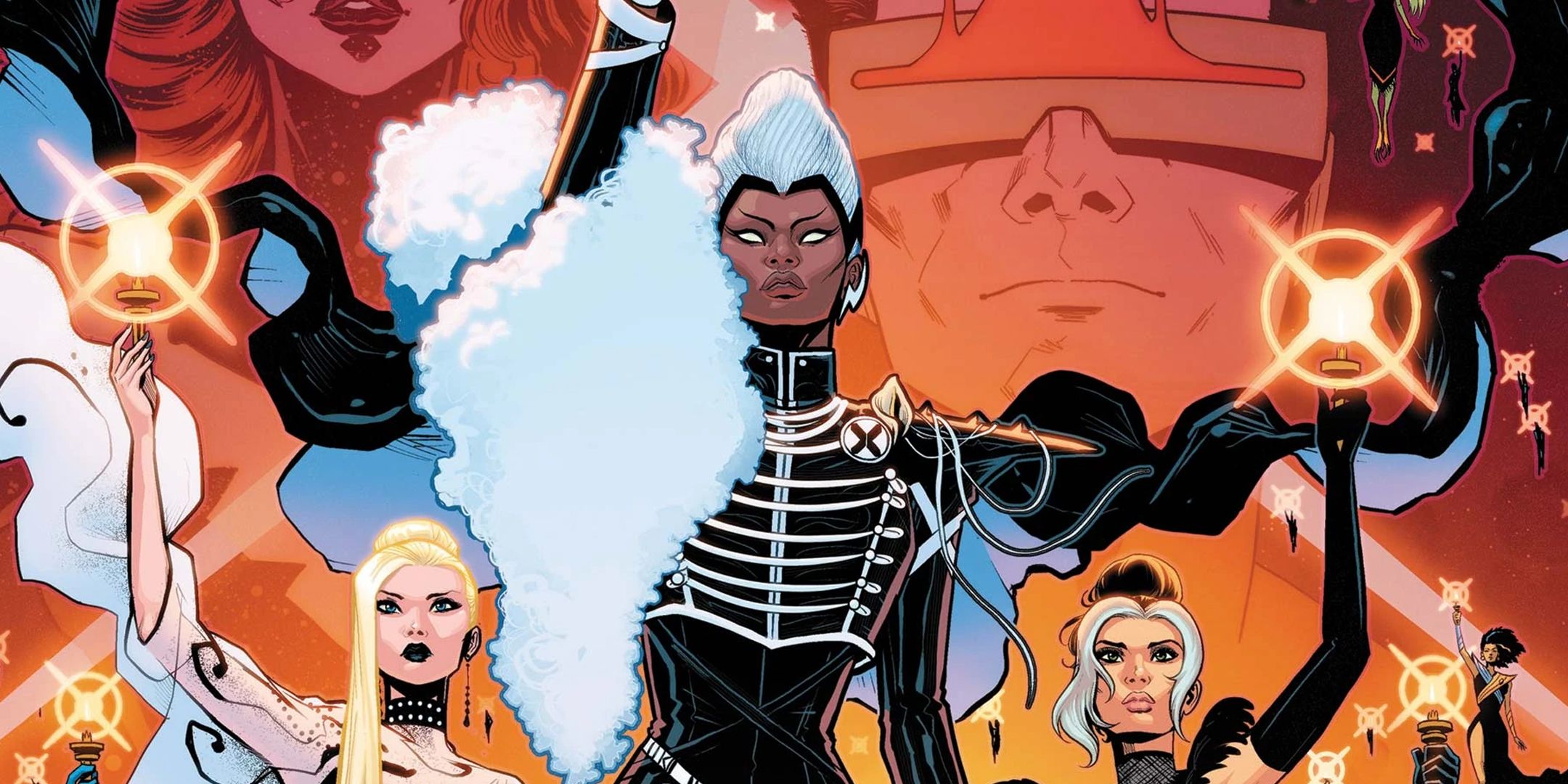



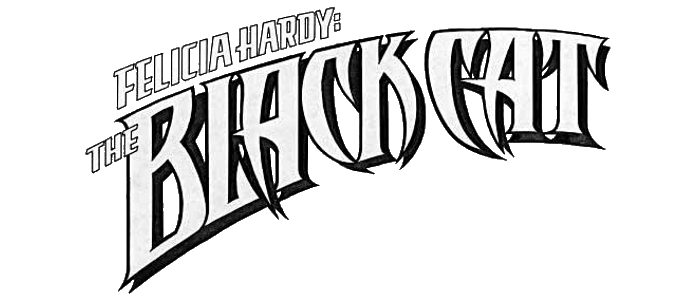



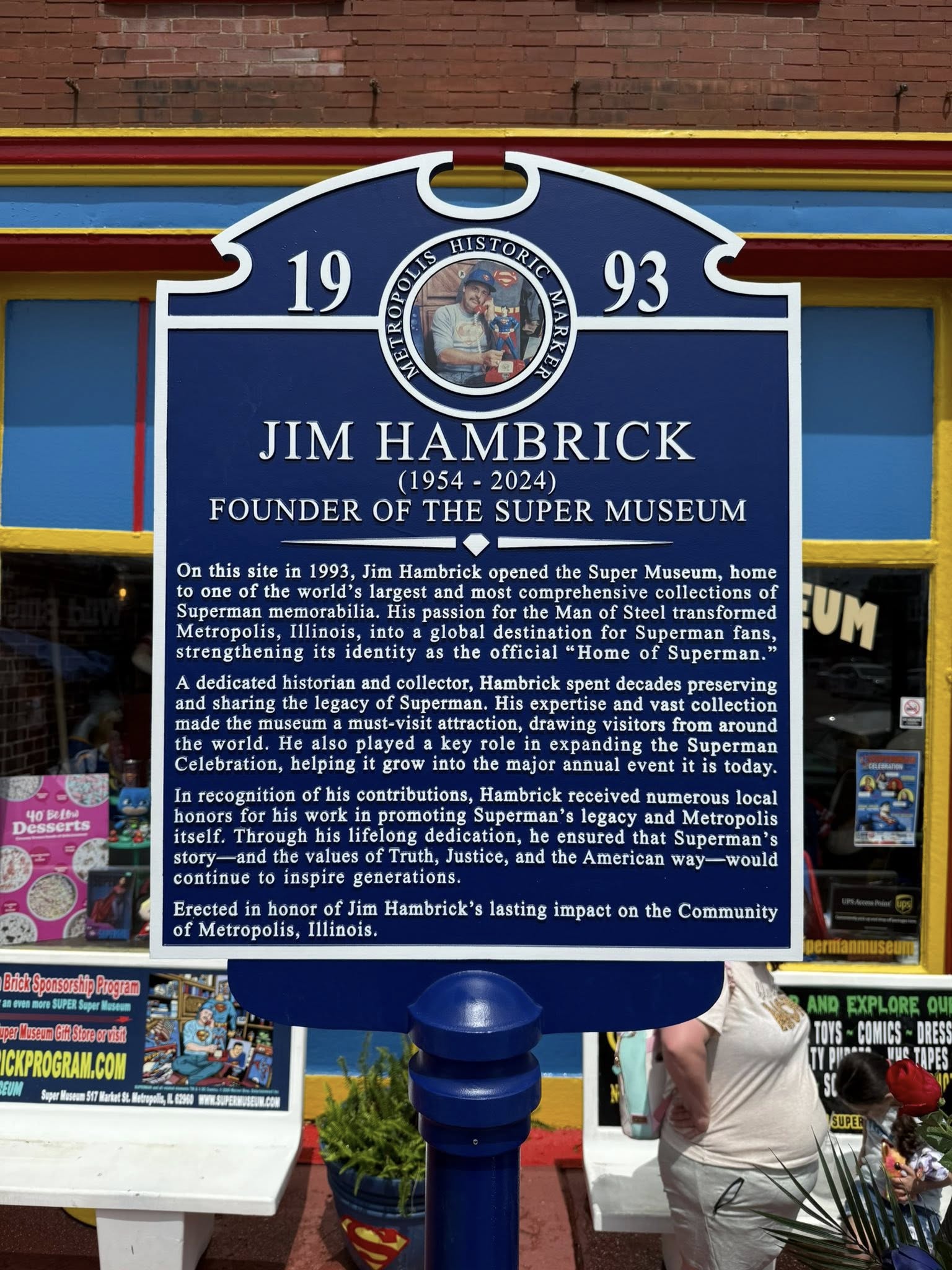



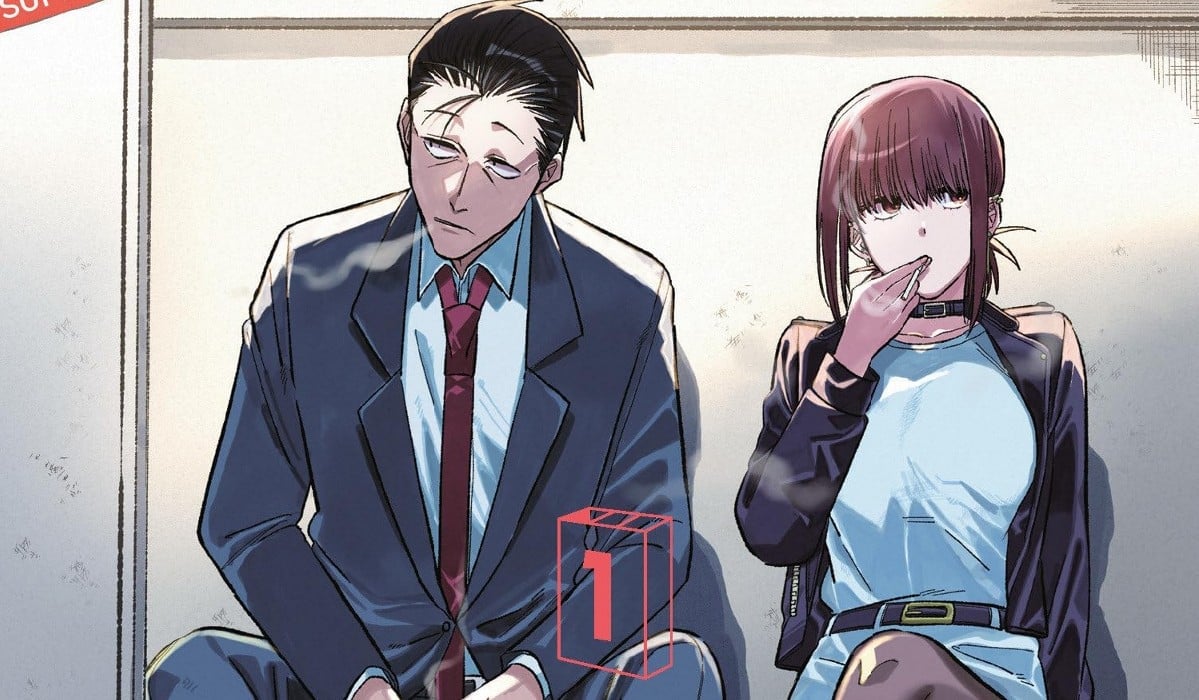
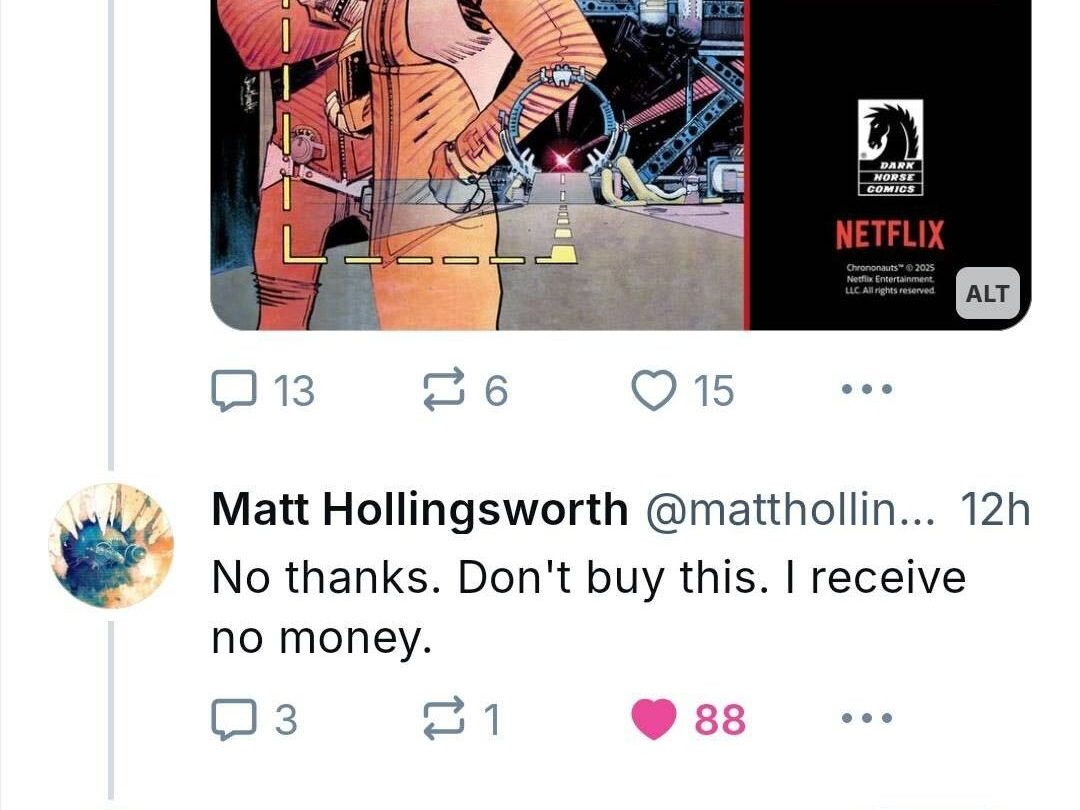


 English (US) ·
English (US) ·